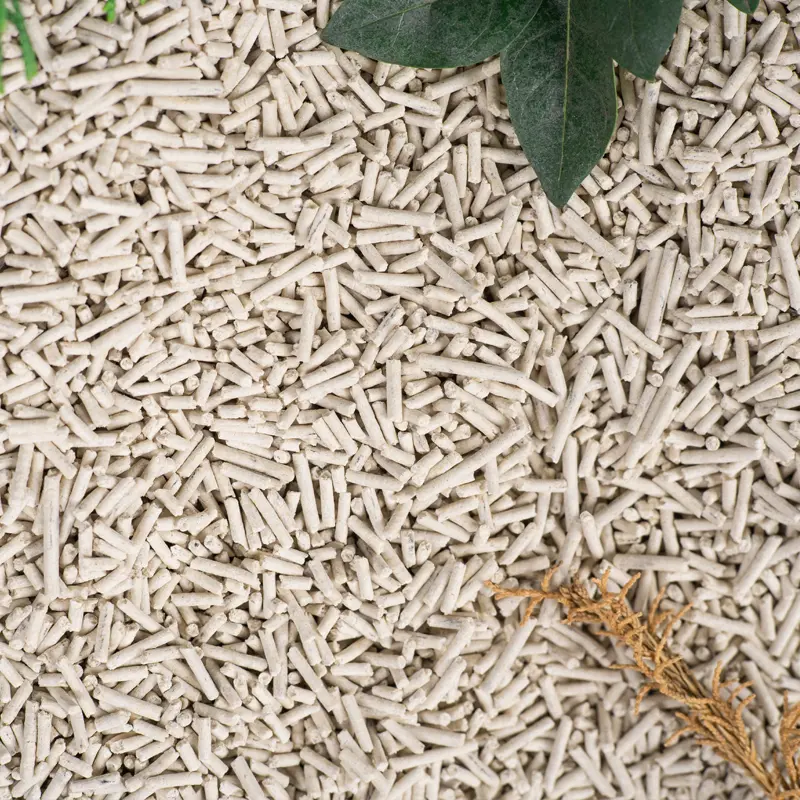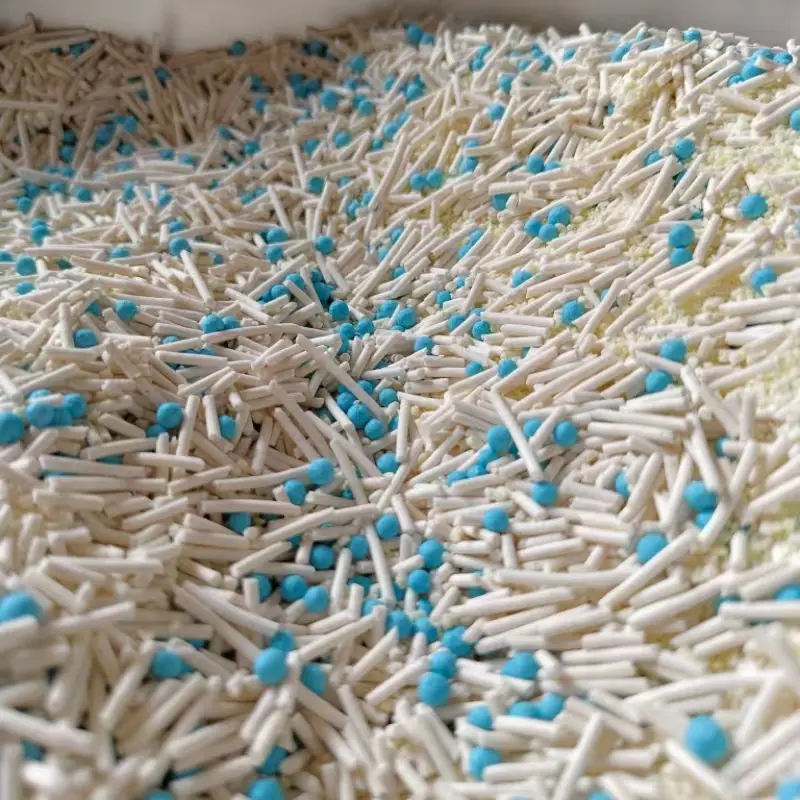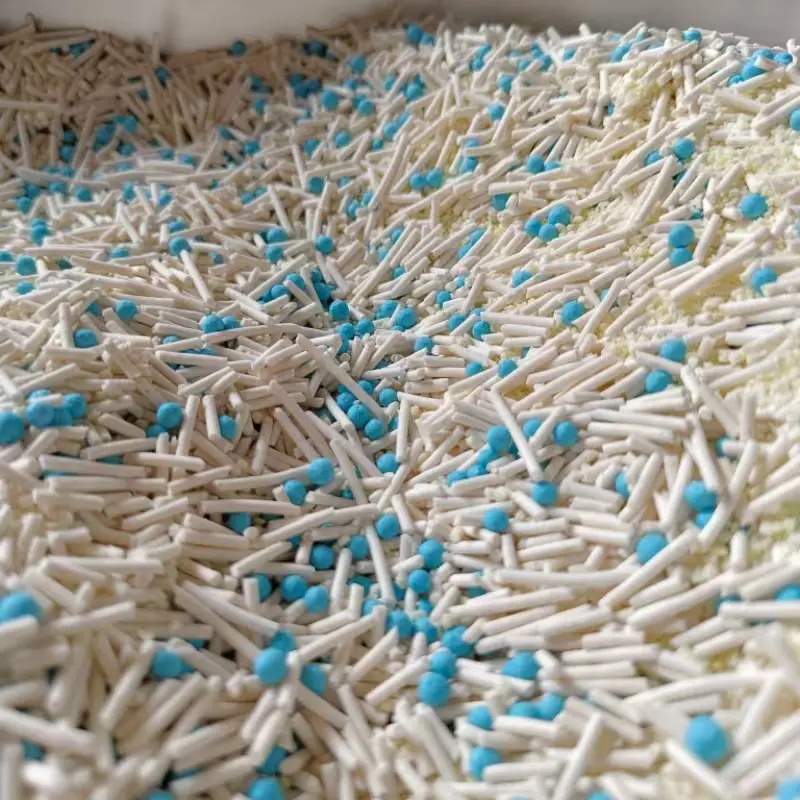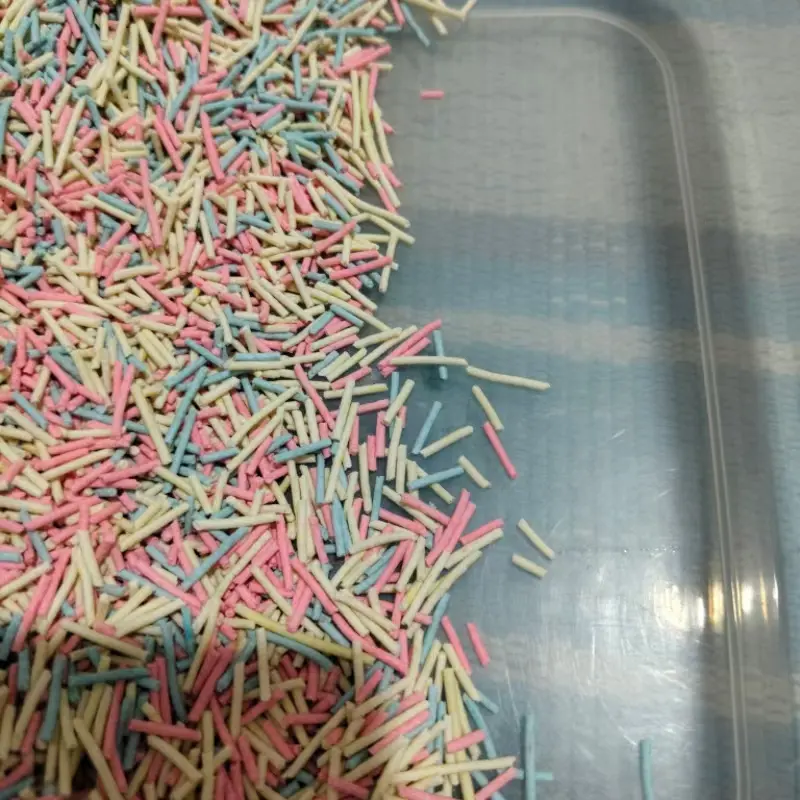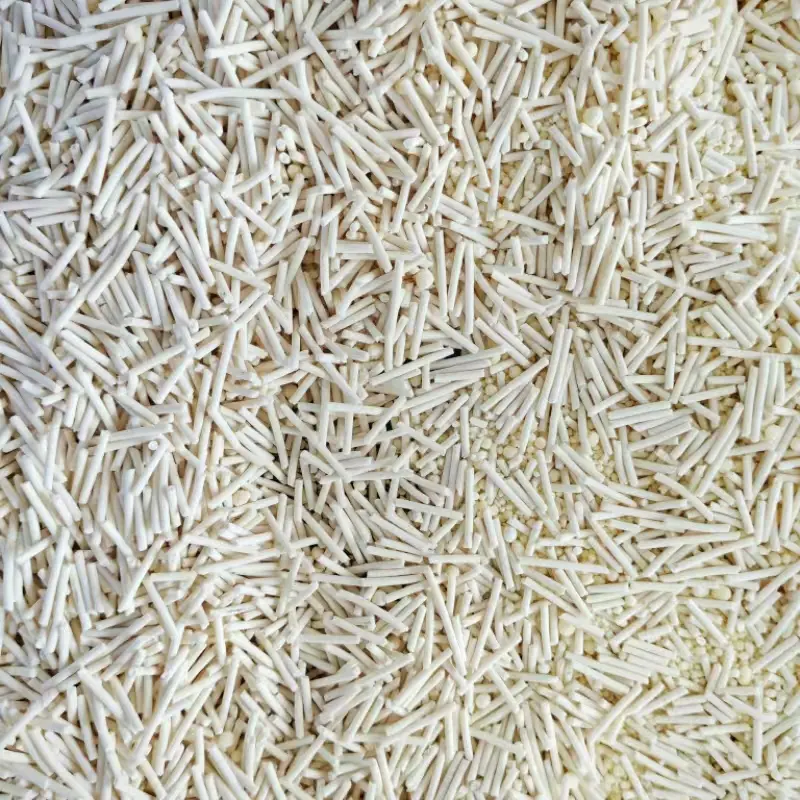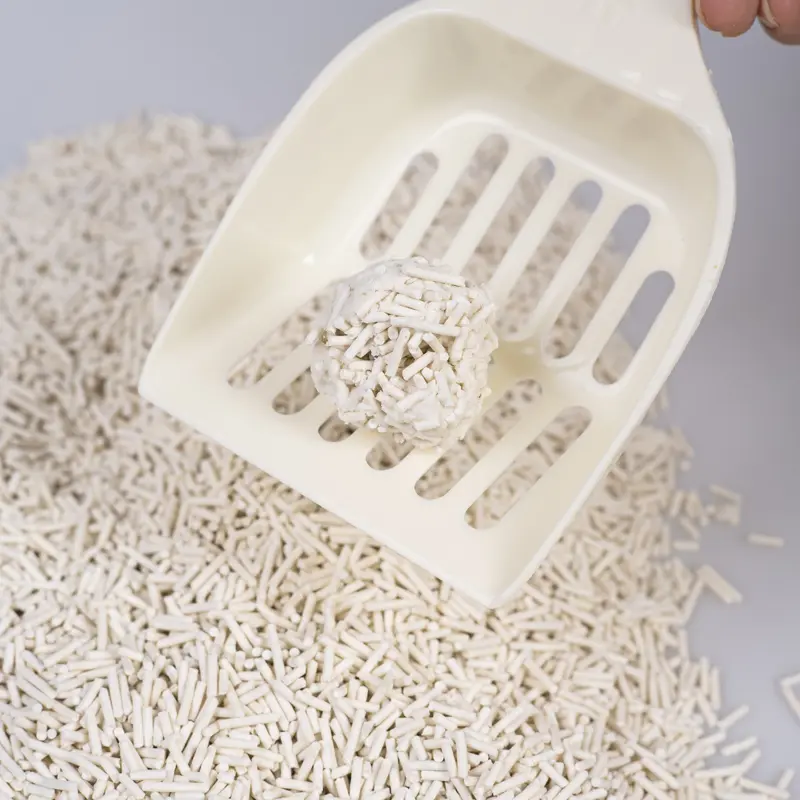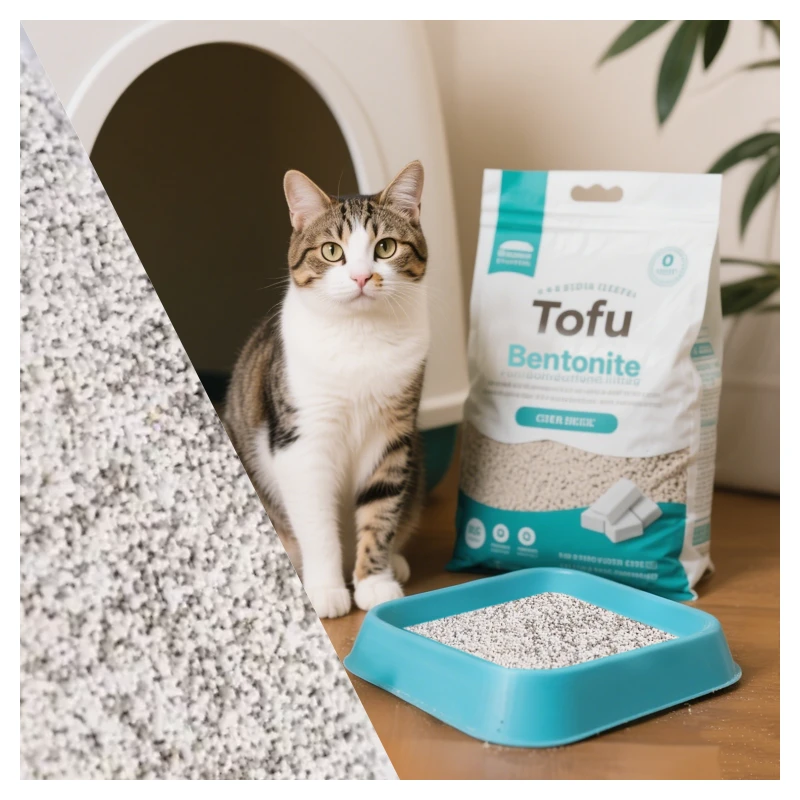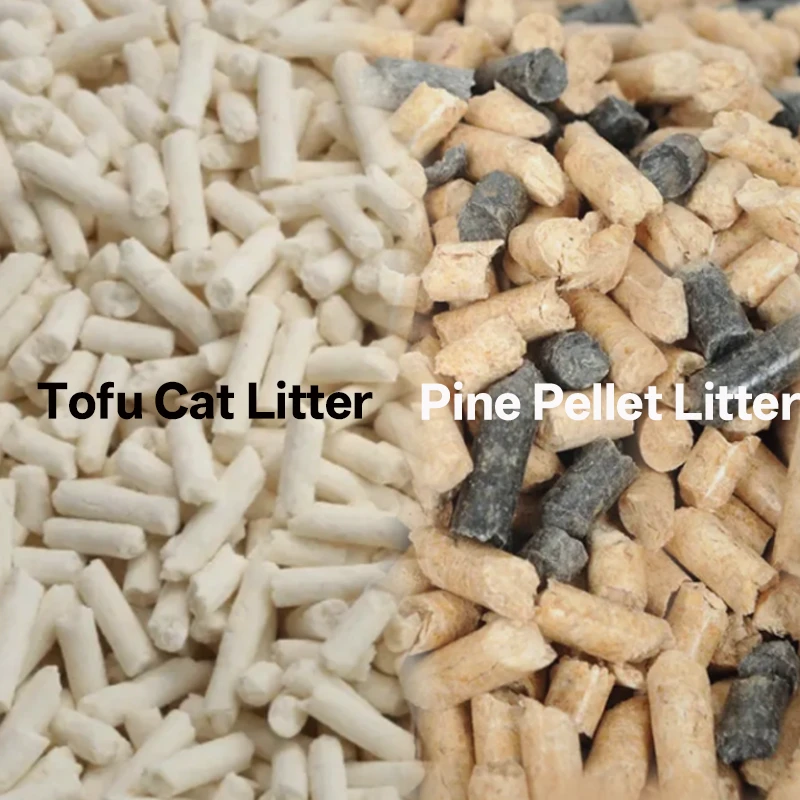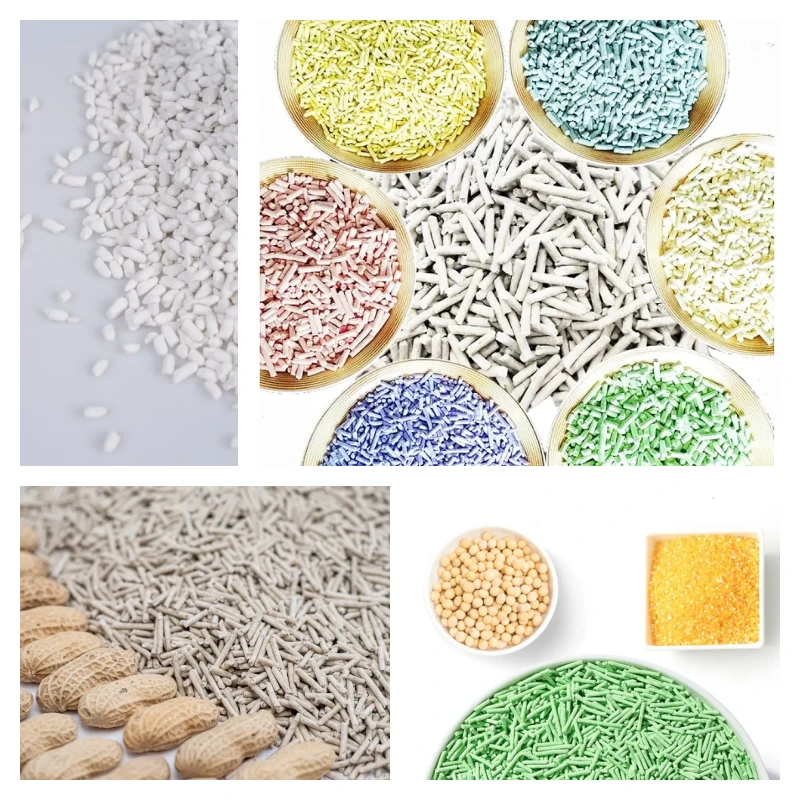Dealing with cat litter odor can be a common challenge for cat owners. Although cats are relatively clean animals, the litter box can produce unpleasant smells, especially if not maintained properly. Whether you're dealing with the occasional bad smell or persistent odors, there are fast and effective solutions to help you eliminate cat litter box odors and keep your home smelling fresh.
In this article, we’ll explore various tips and strategies to quickly get rid of cat litter smells, focusing on practical methods and expert advice.
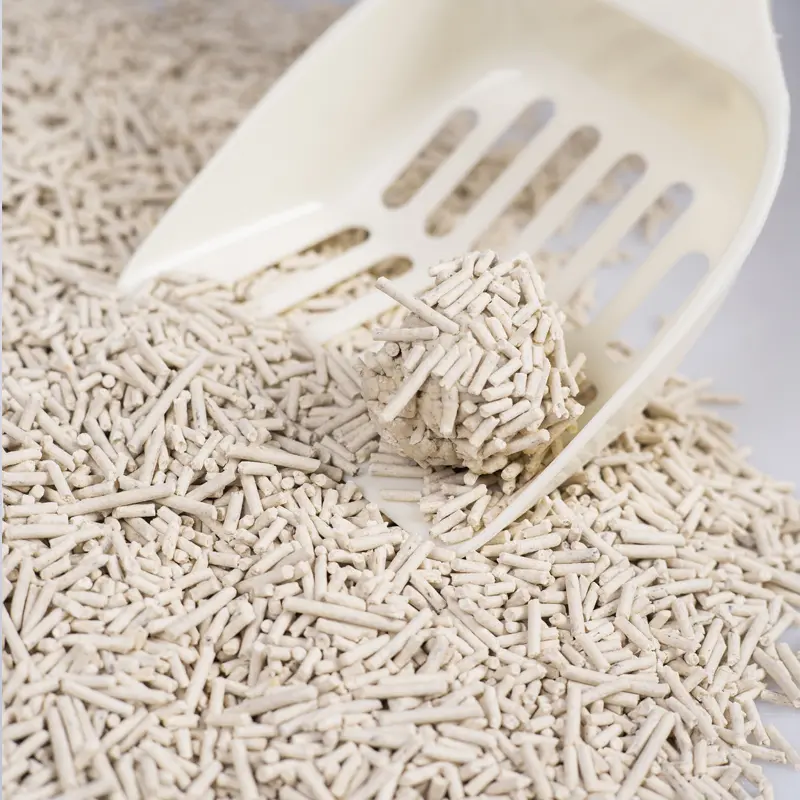
"The clumping cat litter is good at odor control,because you can scoop the soiled cat litter every day and keep your house fresh"
1. Scoop the Litter Box Regularly
Fastest Action: Scoop the litter box at least once or twice a day. One of the most effective ways to control odors is by promptly removing waste. The longer urine and feces sit in the litter box, the stronger the smell becomes. Using a high-quality scoop, remove clumps of urine and solid waste frequently.
Why it works: Waste left in the litter box continues to emit strong odors. Frequent scooping minimizes the buildup of odors and prevents them from spreading throughout your home.
2. Use a High-Quality, Odor-Control Cat Litter
Not all cat litters are created equal when it comes to odor control. Choosing a high-quality litter with odor-neutralizing properties can make a significant difference.
Clumping Litter: Look for a litter that clumps well. This helps trap moisture and odors, preventing them from spreading.
Activated Charcoal or Baking Soda: Some cat litters are enhanced with activated charcoal or baking soda, which are known for their ability to absorb and neutralize smells.
Silica Gel Litter: Silica gel litter absorbs urine and locks in moisture, keeping the litter box drier and less smelly for longer.
3. Add Baking Soda to the Litter Box
Baking soda is a natural odor absorber that can help eliminate unpleasant smells. Sprinkle a small amount of baking soda at the bottom of the litter box before adding the cat litter.
Why it works: Baking soda neutralizes acidic odors from cat urine, keeping the litter box smelling fresh without using harsh chemicals.
How to use: After cleaning the litter box, sprinkle about ¼ cup of baking soda into the bottom before adding the fresh litter. You can also mix in a little baking soda into the top layer of the litter for ongoing odor control.
4. Clean the Litter Box Thoroughly
No matter how often you scoop, it’s essential to clean the entire litter box thoroughly on a regular basis. At least once a week (or more frequently if odors are an issue), empty the litter box completely and clean it with mild soap and warm water.
Why it works: Over time, the litter box itself can absorb odors from cat urine, which can lead to persistent smells even after scooping.
How to clean: Remove all litter, scrub the box with a solution of mild detergent and warm water, and allow it to dry completely before refilling it with fresh litter.
5. Ventilate the Room
Sometimes the quickest way to eliminate odors is by allowing fresh air to circulate. If your litter box is in a confined area, odors can become trapped. Ventilate the room by opening windows, using fans, or turning on an air purifier.
Why it works: Proper ventilation reduces the concentration of odors in the room, helping the space smell fresher and less stuffy.
Extra tip: If the litter box is in a small, enclosed space like a bathroom or laundry room, consider using an air purifier with a HEPA filter to remove odor particles from the air.
6. Use an Enclosed or Self-Cleaning Litter Box
An enclosed litter box or a self-cleaning litter box can help contain odors more effectively than an open litter box. The lid or hood of an enclosed box traps smells inside, while a self-cleaning litter box automatically removes waste, keeping the litter fresh for longer.
Why it works: Enclosed boxes provide a physical barrier to prevent odors from spreading. Self-cleaning boxes ensure that waste is removed more frequently, reducing the chance for smells to develop.
7. Change the Litter More Frequently
If you're still struggling with odors, you may need to change the litter more often. Depending on how many cats you have, it may be necessary to completely replace the litter every week or even every few days.
Why it works: Fresh litter absorbs moisture and odors more effectively than old, saturated litter. By changing the litter regularly, you ensure that it maintains its odor-fighting properties.
Tip: If you have multiple cats, consider getting additional litter boxes to spread out the waste and reduce the need for frequent litter changes.
8. Use Cat Litter Deodorizers
Cat litter deodorizers are specially formulated powders or sprays that help neutralize odors between litter changes. These products often contain baking soda, essential oils, or enzymes that help break down odor-causing compounds.
Why it works: Deodorizers add an extra layer of protection against odors, particularly if your litter is not enough to control the smell.
How to use: Lightly sprinkle a cat litter deodorizer on top of the litter, or use a spray version to cover any lingering smells.
9. Regularly Clean Surrounding Areas
Odor from the litter box can spread beyond the box itself. Vacuum or sweep the area around the litter box regularly, and wipe down any nearby surfaces that might be affected by dust, tracked litter, or urine spray.
Why it works: Keeping the area around the litter box clean helps prevent odors from settling into flooring, walls, or furniture.
Extra tip: Place a litter mat underneath the litter box to catch stray litter and prevent it from being tracked throughout your home.
10. Consider Your Cat’s Diet
A cat’s diet can have a significant impact on the smell of their waste. High-quality, grain-free cat food typically results in less smelly waste, while low-quality food may lead to more pungent odors. If litter box smells are a frequent problem, consider consulting your vet about switching to a higher-quality diet.
Why it works: A balanced, high-protein diet is more digestible for cats, leading to less waste and reduced odor.
Tip: Avoid feeding your cat cheap, filler-laden foods that may result in smellier stools.
Conclusion
Getting rid of cat litter smell fast requires a combination of regular cleaning, high-quality litter, and good hygiene practices. By incorporating daily scooping, frequent cleaning, and using odor-absorbing products like baking soda, you can quickly and effectively eliminate unpleasant odors from the litter box area. Whether you use an enclosed box, ventilate the room, or invest in a self-cleaning litter system, maintaining a fresh-smelling home with cats is entirely possible.
By following these steps, you'll not only keep odors at bay but also create a more pleasant and healthy environment for both you and your furry friend.
By taking these quick steps, you can help reduce and eliminate cat litter odors in your home, creating a more pleasant and fresh environment for both you and your cat.
But if you used a good odor control cat litter, you will find there is much less unpleasant smell in your cat litter. These cat litters can elinimate the odors by its natural materials and keep your house fresh. The Gelin Town Pet can provide you a full range of plant-based cat too to give you good experience to stay away from the bad smell.It can solve these problems in potential.
